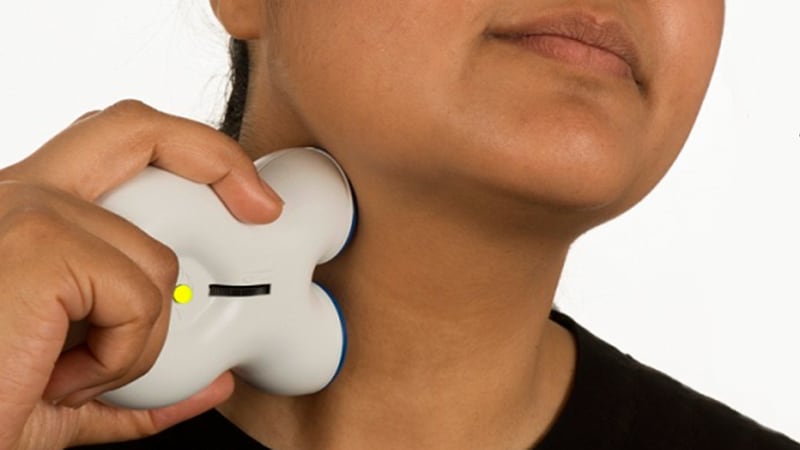Self-administered, noninvasive cervical transcutaneous vagal nerve stimulation (ctVNS) appears to boost mood and cognitive performance in sleep-deprived individuals, early research suggests.
In a study of sleep-deprived US Air Force pilots, those who received active ctVNS performed “significantly better on multitasking, had faster reaction time, higher arousal levels, and reported feeling more energetic and less fatigued” than peers who received sham stimulation, first author Lindsey McIntire, MS, with Infoscitex, Inc, Dayton, Ohio, told Medscape Medical News.
CtVNS could be a “powerful fatigue countermeasure tool that is easy to administer, long-lasting, and has fewer side-effects compared to common pharmacological interventions,” the investigators note.
The study was published online June 10 in Communications Biology.
FDA-Cleared
“With ctVNS, we can augment activity in key brain areas like the locus coeruleus, which is basically the brain’s main norepinephrine center, involved with wakefulness, attention, arousal, and learning,” R. Andy McKinley, PhD, an investigator on the study with Air Force Research Laboratory/Applied Neuroscience Branch, Wright-Patternson Air Force Base, in Ohio, told Medscape Medical News.
The investigators note that fatigue is a “pervasive public health and safety issue” that is often managed with caffeine or other chemical stimulants. They note that although these can be effective in a limited way, noninvasive electrical neuromodulation has shown promise, and it is “reasonable to suspect that other types of noninvasive neuromodulation may be similarly effective or perhaps even superior.”
To evaluate the ability of ctVNS to mitigate the negative effects of fatigue on cognition and mood, the researchers used the gammaCore (electroCore) product, which is cleared in the United States to treat cluster headaches and migraine. The device passes a noninvasive electrical current at 25 Hz through the skin to the nerve via two electrodes placed over the neck.
Forty active-duty air force personnel (mean age, 28 years; 33 men) from Wright-Patterson Air Force Base participated in the study; 20 were in the ctVNS stimulation group, and 20 were in the sham stimulation group.
Participants in both groups underwent 34 hours of continuous sleep deprivation in the laboratory. They completed performance tasks and answered subjective questionnaires at various points throughout the duration of the study.
As hypothesized, ctVNS improved some aspects of cognition during the sustained wakefulness vigil, the authors report.
Significant improvement was noted in objective arousal and multitasking cognitive performance up to 24 hours after stimulation ended. The greatest performance boost was in tasks that required visual attention.
Active ctVNS also led to improvements in mood and subjective ratings of fatigue but not working memory.
New Application?
“This is the first study to successfully utilize ctVNS in healthy humans to enhance cognitive performance during sustained wakefulness,” the investigators note.
“Certainly, this has applications for the military, where people often rotate shift schedules, transitioning from day to night shift or night to day shift, and this might make that transition easier,” McIntire told Medscape Medical News.
“It also has applications for jobs like transportation and the medical field, where people do shift work or have longer duty hours,” she said.
Reached for comment, Shin C. Beh, MD, assistant professor of neurology, University of Texas Southwestern Medical Center, Dallas, Texas, said, “The effect of VNS on wakefulness and fatigue is quite novel. The results need to be replicated, of course, but I think it is certainly a potentially exciting new application for it.
“We are always learning more about the connections of the vagus nerve through the brain, and it is quite possible that the effects of VNS on fatigue and cognition extend beyond the locus coeruleus,” Beh said.
Funding and support for the research was provided by the National Aeronautics and Space Administration. McIntire, McKinley, and Beh have disclosed no relevant financial relationships.
Commun Biol. Published online June 10, 2021. Full text
For more Medscape Psychiatry news, join us on Facebook and Twitter.

